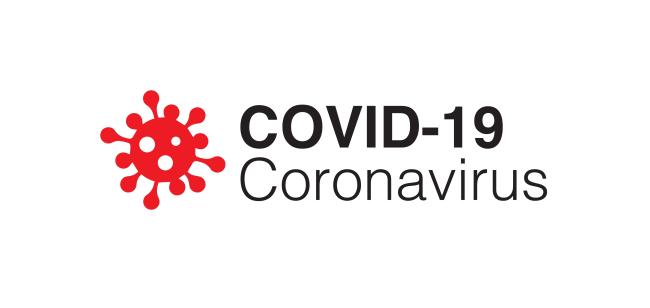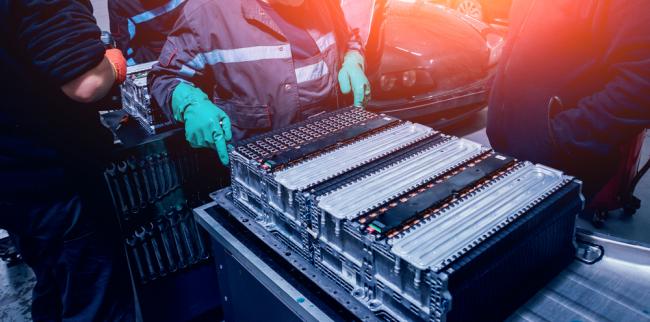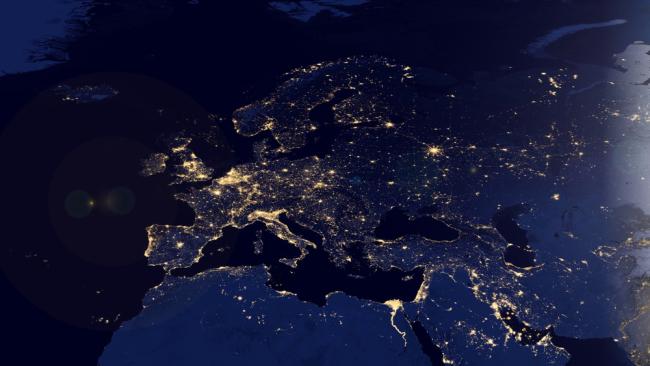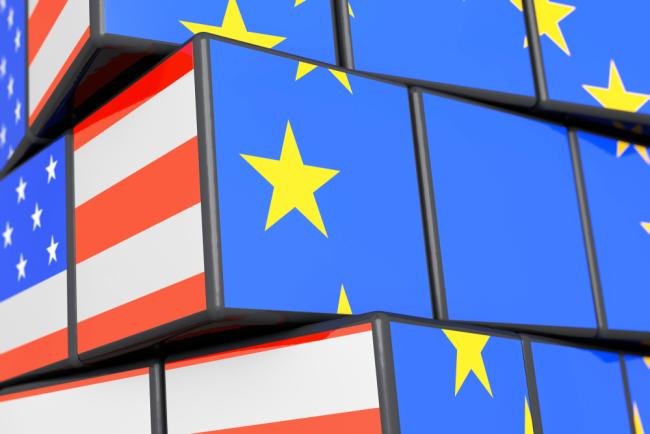Europe
Europe is described here in a geographical sense. It is not limited to the European Union, and includes, for example, the United Kingdom and the Balkans. It remains central to international relations.
Related Subjects

Placing the EU on a Warfare Footing: Energy and Raw Materials Priorities for 2026
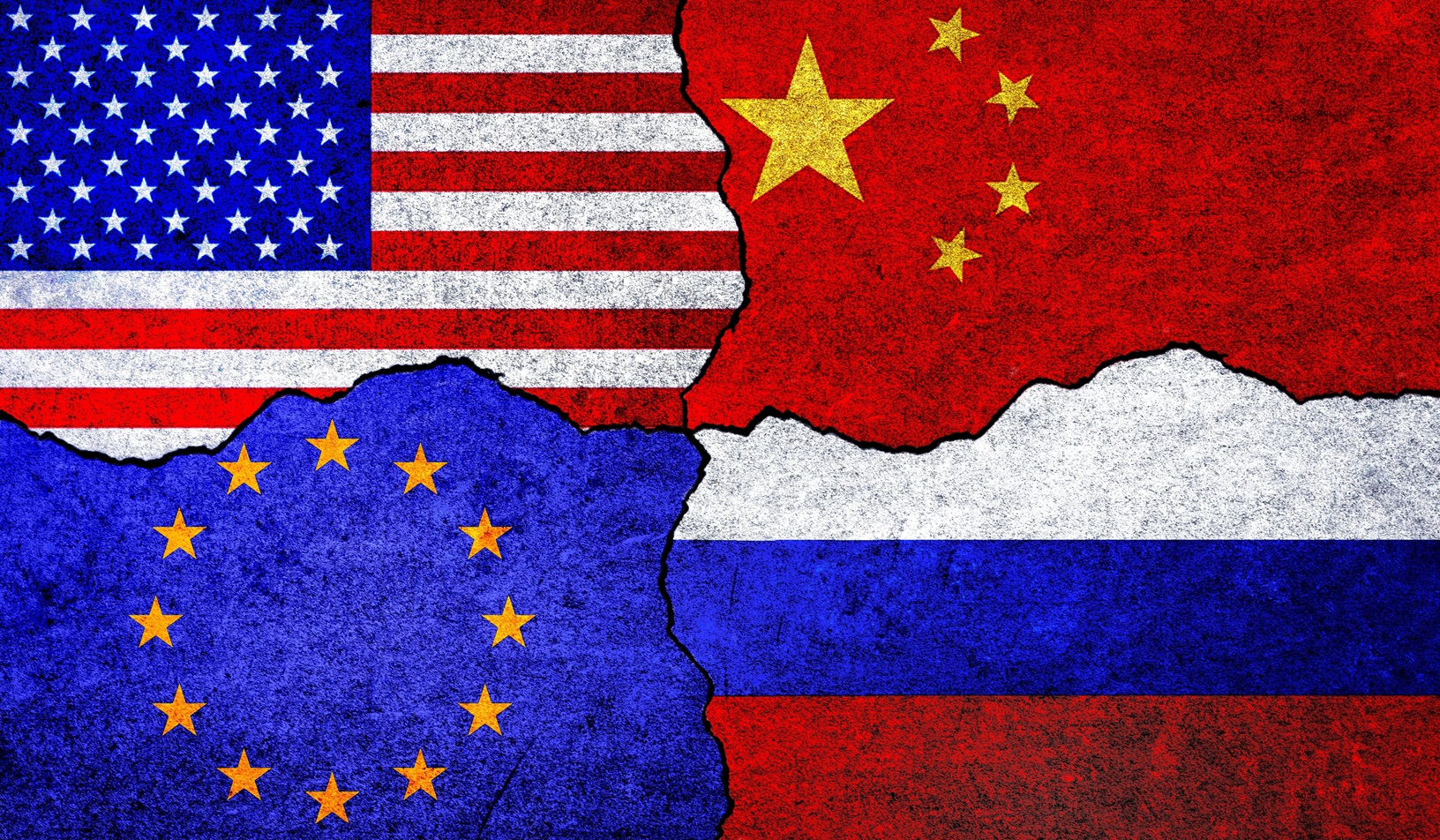
The year 2025 has confirmed that one must prepare for much worse in the field of geopolitics and geoeconomics as the intensity and frequency of shocks increase and as the European Union (EU) has no more stable flanks now that crises with the United States (US) become so frequent and reveal a systemic rift. In the world, barriers to trade multiply and dependencies are weaponized.
Accelerating the Energy Transition: The Role of Green Finance and its Challenges for Europe
Green finance has been a burgeoning sector since the Paris Agreement and is at the crossroads of financial, socio-economic and environmental challenges. It is hybrid in nature: it uses financial instruments and focuses on environmental issues, while coming under the wider field of so-called “sustainable” finance that assumes a broader approach with the inclusion of socio-economic and governance challenges. It is a catalyst as it facilitates and accelerates the transition to a low-carbon economy. It also includes an increasing range of instruments. From green bonds to green indices, green loans and capital raising activities, the sector is growing both quantitatively and qualitatively. So-called “green” issuance debt alone increased fivefold in nearly three years to reach US $ 257 billion in 2019, emphasizing its on-going innovation and attractiveness.
Green finance embraces the various objectives of public and private actors. It also raises major questions about the future of our societies: choosing to finance only sectors that are already “green” entails significant socio-economic risks, such as job losses in high-emitting (brown) sectors and stranded assets. Adopting a sequenced approach potentially amounts to locking in polluting activities in the long term and not achieving the Paris Climate Agreement’s objectives (lock-in effect).
In view of the physical risks of climate change (devastation and disasters) and those related to energy transition (stranded assets), climate change is now generally considered as a systematic risk. Public and private actors– institutional investors, banks, regulators, central banks, insurers, credit rating agencies, states, multilateral organizations – are taking action both to better understand the risks posed by climate change, and to capitalize on opportunities in this growing field. Green finance provides the financial sector with instruments to effectively reorient capital towards the low-carbon transition. Against a background of uncertainty about the effects of climate change,[1] green finance also reduces the information asymmetry about risks related to major ecosystem disruptions. The structuring and distribution of “green” products are important growth drivers for many stakeholders and in a wide variety of sectors.
However, many risks and challenges remain: financial risks, specifically related to high levels of subsidies for the production and use of fossil fuels, and the lack of a single carbon price; structural risks, which hamper the economic attractiveness of sustainable activities, particularly in terms of profitability; and unclear political signals, notably resulting in regulatory uncertainty. Furthermore, the language of green finance remains fragmented and is still relatively vague: there are many reporting frameworks and taxonomies, preventing easy and uniform ownership by stakeholders. Standardized methodologies, requirements and disclosures are critically needed. A common language is required, not only among Europeans but worldwide, to ensure that financing the ecological transition is genuinely effective.
The quality and comparability of non-financial reporting must be significantly improved to ensure its effectiveness. The principle of double materiality of information – financial and non-financial – is crucial. Green finance provides the entire financial system with instruments to accomplish its transition. It also avoids both a “niche” and a lax approach that are conducive to greenwashing and damaging to the sector growth, and, ultimately, to the transitional objective of green finance. As a source of systemic risk, and in view of the challenges of financing the transition, the aim is to ensure that the concept of sustainable finance remains purposeful by integrating environmental, social and governance (ESG) “filters” into the overall operation of capital markets.
There are many risks of intentional or unintentional greenwashing for market actors: making wrong investment choices, because they are ill-informed about the real nature of sustainability; seeing their reputation discredited in their clients and fund managers’ eyes; undermining trust and the fundamentals of green finance.
The European Union (EU) has taken the lead on these issues. The European Commission’s (EC) Action Plan on Financing Sustainable Growth of March 2018 aims to reorient capital flows towards a more sustainable economy, integrate sustainability into financial institutions’ risk management and promote transparency and long-term awareness within financial institutions. This Action Plan includes numerous instruments, such as an Ecolabel for financial products, the development of a European standard for green bonds, a so-called “Disclosure” regulation legislating on non-financial reporting by market actors, and the clarification of banking and investment advisors’ duties in terms of integrating ESG factors and incorporating sustainability into prudential requirements for banks and insurers. One of the main instruments is the European “taxonomy” for sustainable economic activities, which is intended to establish a common language for greening the financial sector by covering a wide range of actors and activities, at least on a voluntary basis. This future taxonomy has major global potential that could boost the EU’s normative power. Consequently, these challenges are now the focus of the G20 and its Financial Stability Board (FSB), and that of the United Nations.
The EU’s sustainable finance strategy is over the long term, striving to take as comprehensive a view as possible of financial regulation and climate change, and therefore fully redirect capital flows towards financing the transition. The next few months will be critical for the future of the sector, with work continuing on the European taxonomy, the preparation of delegated acts subsequent to the final recommendations prepared by the EU’s Technical Expert Group on Sustainable Finance (TEG), and the implementation of the European Green Deal.
[1]. “Scientific Uncertainty”, Nature Climate Change, Vol. 9, No. 797, October 29, 2019, available at: www.nature.com; M. L. Weitzman, “Fat-Tailed Uncertainty in the Economics of Catastrophic Climate Change”, Review of Environmental Economics and Policy, Vol. 5, No. 2, 2011, pp. 275-292, available at: https://doi.org.
COVID-19: The Price of Negligence
It is not easy to step back and gain perspective on a battle that is raging on the home front for all of us and has not yet reached its peak. However, I do want to share some of my thoughts on the COVID-19 pandemic, especially its context.
The Recycling of Lithium-Ion Batteries: A Strategic Pillar for the European Battery Alliance
Although it is still marginal, the market for electric vehicles (EVs) is growing. According to the French Institute of Petroleum and Renewable Energies (IFPEN, Institut Français du Pétrole et des Énergies Renouvelables), EVs accounted for a little more than 2% of the light vehicle market in 2019. This was up by 54% compared to 2018, but EVs still only represent 0.8% of the global car fleet. That said, the International Energy Agency (IEA) estimates EVs could make up between 15% and 30% of vehicle sales in 2030.
The Gulf: New Center of the Middle East?
Amid the shift in major powers, the Persian Gulf is asserting its position at the heart of the Middle East.
The Green Deal’s External Dimension. Re-Engaging with Neighbors to Avoid Carbon Walls
The European Union (EU)’s Green Deal is a game changer with attention so far focused on forthcoming actions plans, the Climate Law, financial resources, the revision of the 2030 targets and of the emissions trading system (ETS).
Sanctions and the End of Trans-Atlanticism. Iran, Russia, and the Unintended Division of the West
Sanctions have become the dominant tool of statecraft of the United States and other Western states, especially the European Union, since the end of the Cold War.

Europe in the Face of US-China Rivalry
Navigating the mounting tensions between the United States and China is a geopolitical minefield. Is Europe up to the challenge?
Europe and Africa
In this special issue of Politique étrangère devoted to the proceedings of the conference organized by Ifri on April 10, 2019, in the Grand Amphitheater of the Sorbonne, on the occasion of its fortieth anniversary, discover the conversation between Louise Mushikiwabo, Secretary General of La Francophonie and Thierrry de Montbrial, Founder and Executive Chairman of Ifri.
The Future of Europe from the US and Asian Point of View
In this special issue of Foreign Policy devoted to the proceedings of the conference organized by Ifri on April 10, 2019, in the Grand Amphitheater of the Sorbonne, on the occasion of its fortieth anniversary, discover the debate moderated by Sylvie Kauffmann between John Allen and Kishore Mahbubani.
The Future of Europe in the Context of Sino-American Competition
In this special issue of Foreign Policy devoted to the proceedings of the conference organized by Ifri on April 10, 2019, in the Grand Amphitheater of the Sorbonne, on the occasion of its fortieth anniversary, discover the speech by Bruno Le Maire, Minister of Economy and Finance.
Negotiating for a Malaysia-EU FTA: Contesting Interests from Malaysia's Perspective
Malaysia has shifted its focus from multilateral and regional to bilateral trade agreements due to the current doldrums in the Doha Round and the bandwagon effect from similar shifts in other countries.
Challenges and Opportunities of a EU-Taiwan ECA: A Review of Political-Economic Perspectives
Concerns over becoming marginalized in the course of East Asian economic integration are driving a proactive regional trade agreement (RTA) strategy on the part of Taiwan. Three factors explain this concern: Competing visions of economic integration in the region from both the United States and China, the success of Korea in concluding a large number of important RTAs, and the increasing number of overlapping agreements that crowd out countries and economies such as Taiwan that do not have proactive RTA strategies.
A EU-Japan Free Trade Agreement: Toward More Solid Economic Relations
The European Coal Market: Will Coal survive the EC's Energy and Climate Policy?
The European coal industry is at a crossroads. The European Commission (EC) Energy Policy by 2020, the 20/20/20 targets, is not favourable to coal:
a 20% decrease in CO2 emissions does not favour coal compared with natural gas, its main competitor in electricity generation;
a 20% increase in energy efficiency will lead to a decrease in energy/coal consumption;
a 20% increase in renewables will displace other energy sources, including coal.
How Does the Tea Party Compare with European Far Right Movements?
There is a rich history of far-right political parties in Europe. Long-standing parties such as the French Front National (FN), mostly marginalized since World War II, have enjoyed a resurgence since the 1980’s. Under the very recent leadership of Marine Le Pen, the FN has undergone a rejuvenation of its communication strategy and gained two seats in the National Assembly, the first time that the FN won any seats since the end of the proportional representation system in 1988. There are also many newer far-right parties in Europe, such as the Dutch Party for Freedom (PVV). The PVV, formed in 2006 by Geert Wilders, has become the third most popular party in the Netherlands and was until recently a member of the governing minority coalition.
Establishing the Rule of Law: the U.N. Challenge in Kosovo
Created on the 10th July 1999 by Security Council Resolution 1244, UNMIK was responsible for restructuring the institutions of a country devastated by war and establishing democratic governance. The security of people and goods and the existence of a legal system trusted by the population were two crucial prerequisites to the state-building process.
An Overview of Italy's Energy Mix
Italy is currently hit by an unprecedented economic, political and social crisis. This changing and uncertain environment affects more than ever the ability to define an energy strategy, which has never really benefitted from a clear vision and a solid organization. Since the 1987 referendum, which acknowledged the end of the nuclear program, the Italian energy policy has been elaborated through a juxtaposition of decrees and rules. Several laws have been approved either to comply with the European regulation or to correct former policies. These have contributed to the creation of a highly intricate regulation puzzle, only accessible to the most voluntary ones or the better equipped. The “success” of renewables subsidies has compromised the profitability of thermal power stations and increased the energy bills of retail consumers.
Launcher policy in Europe: from symbol to the market?
Launcher policy will be one of the major issues discussed at the upcoming ESA Council at Ministerial Level. Europe is at the crossroads, as it needs to find the adequate balance between political necessities (ensuring an autonomous access to space) and economic realities (reducing costs).
Gas Routes to Europe: Real Needs and Political Jockeying
The Energy Roadmap 2050 released by the Commission in December 2011 says it all: we will need more gas until 2030. Gas represents the default solution for a transition to an energy system with less GHG emissions. It also has great value as a back-up for intermittent renewable power generation. Therefore, stating that Europe still needs large quantities of gas means checking if supply volumes are available to satisfy growing demand.
Cruise Missiles and NATO Missile Defense: Under the Radar?
The purpose of this paper is to demonstrate that the threat of cruise missile proliferation is as equally challenging to NATO as the threat of ballistic missiles. Over the last two decades, the emergence of cruise missiles and UAVs as a threat has been slow, and governments, particularly the United States, have invested much less in cruise missile defenses than in ballistic missile defenses.
Support independent French research
Ifri, a foundation recognized as being of public utility, relies largely on private donors – companies and individuals – to guarantee its sustainability and intellectual independence. Through their funding, donors help maintain the Institute's position among the world's leading think tanks. By benefiting from an internationally recognized network and expertise, donors refine their understanding of geopolitical risk and its consequences on global politics and the economy. In 2025, Ifri supports more than 80 French and foreign companies and organizations.









